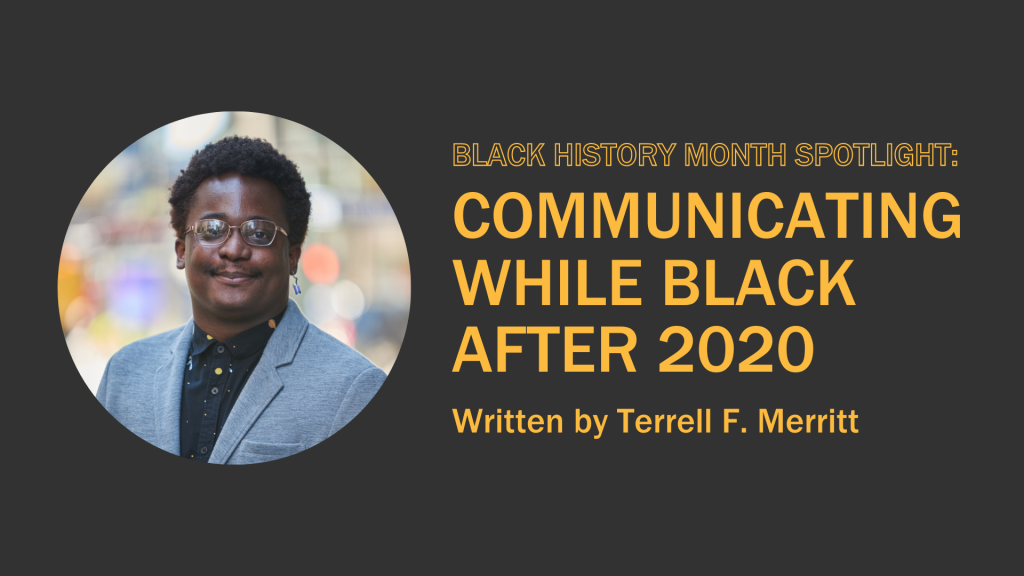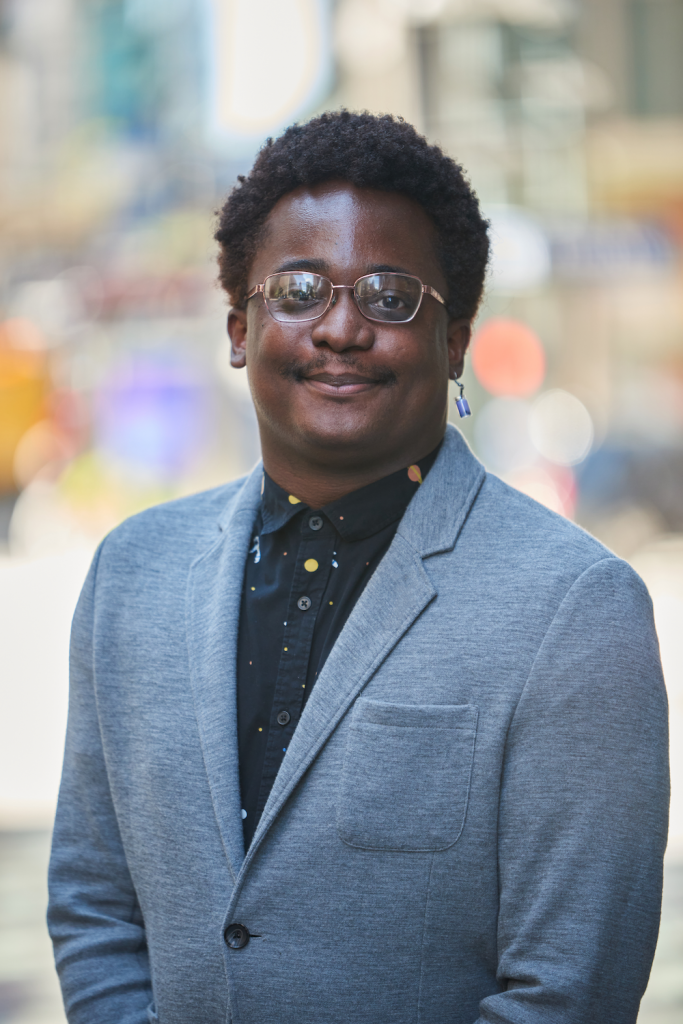Black History Month Spotlight: Communicating While Black After 2020

Black Lives Matter. This should be obvious, yet last spring led to these three words screaming loudly in the consciousness of the United States of America. The country (and the world) was facing a surging coronavirus pandemic, yet we were in the midst of what some called a “second pandemic” — one of racism and the unjust treatment of people of color.
The video of a police officer’s knee being pressed against George Floyd’s neck on May 25, 2020, will forever be ingrained in my head. The hurt from knowing that this lasted for eight minutes and 46 seconds — or longer, as later reports state — will always linger.
Getting ready for my virtual graduation celebration, scheduled for two days after Floyd’s murder, immediately seemed less urgent. Receiving my degree after a six-year journey did not even matter, as I once again faced the image of an unarmed person who looks like me losing his life for all to see.
June 1 came along and I watched videos of my city on fire while marking the first day of my full-time career. If not for the fact that The City University of New York had hired me immediately following a spring semester internship, the onboarding process would have been nearly impossible to follow given the moment’s impact on my mental health.
I was lucky that my work environment involved working on a team led by women of color, at a university where 25% of students are Black. The people I report to felt similar pains, so it was a central topic of even our casual discussions.
At the same time, I was coming to terms with how difficult it can be to talk about an issue that our students felt personally, with many of them posting about their feelings daily. There were many evenings when I paced my apartment building’s hallways, holding back tears. And in a time when I already felt increasingly vulnerable with the look into my personal life offered by Zoom meetings, I was not particularly ready to discover how different my lived experience might be.
I knew exactly how I felt. But as a new professional in the industry, I did not feel seasoned enough to balance the strong language this time deserved with the need to practice restraint in order to clearly get a message to sink in for those who don’t get it.
There was work to do for communicators everywhere. While all of the groups I served made statements that touched on the raw emotion of the moment as well as the role of race, many others truly missed the mark. From chief communications officers to new PRSSA students, we have an obligation to understand our audiences and communicate accordingly.
As our industry continues to evolve, fewer conversations about whether underrepresented groups deserve to live will be deemed political or controversial. There will be more emotion in the prompt responses to these moments. There will be enough Black people in the room to prevent insensitive statements, and companies will be informed enough to know better regardless.
More agencies and companies need to understand that it takes a lot of privilege to be silent after the murder of George Floyd and the responding conversations, protests and riots. If the past year has not shown them that, however, then they will simply continue to fall behind.
I know that either way, the future communicators in PRSSA are poised to bring the change this industry has needed for decades. Mixing Gen Z’s trademark lack of tolerance for the status quo with the professional skill it takes to be an effective public relations practitioner is a recipe for success.
We have been waiting too long for change, but I have faith that it is finally coming.
And whether Black people, or any other group, matter? Hopefully that won’t be up for debate.

Terrell F. Merritt is a digital and editorial strategy assistant at The City University of New York and a member of the PRSA New York Chapter’s Diversity & Inclusion Committee. They served as the PRSSA 2019–2020 vice president of brand engagement before graduating from The City College of New York. Connect with them on Twitter or LinkedIn.
